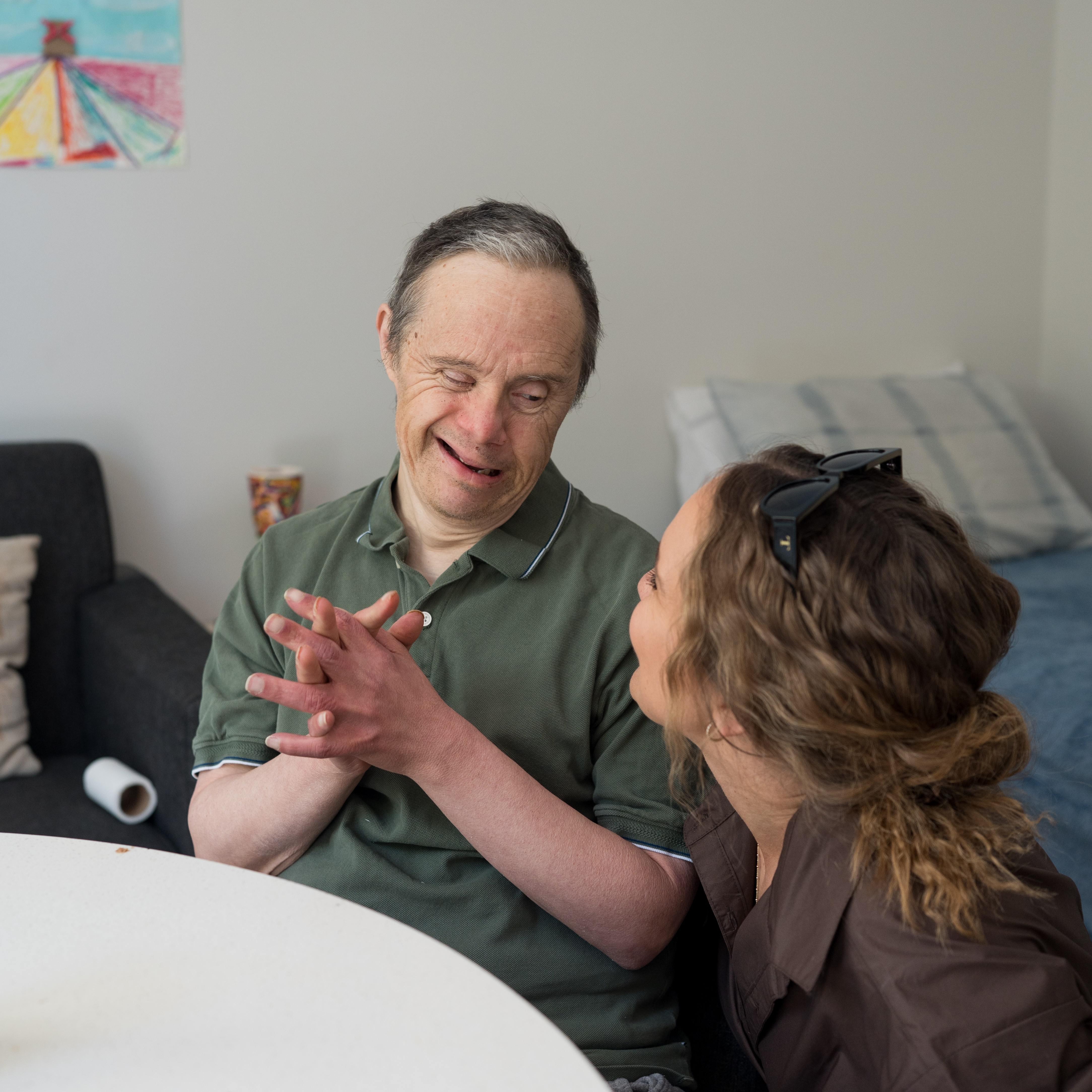In this post
If you're a primary caregiver for a family member with a disability, you’ll know all too well about the trials and tribulations the responsibility comes with. You love them dearly, but the demands of providing support can leave you feeling drained, both physically and emotionally. You crave a break, a chance to recharge and return to your caregiving role with renewed energy.
Alternatively, maybe you’re living with a disability and receiving support from a family member at home. You've been cooped up indoors for weeks, the same routine playing on repeat. You’d give anything for the chance to escape for a few days, explore a different environment, and try an exciting new activity.
Well, for many people with disabilities and their family members, the change they yearn for can be a reality. This is thanks to respite care, also known as Short Term Accommodation (STA), which is available on the National Disability Insurance Scheme (NDIS).
But the benefits of respite care go far beyond just a break from the ordinary. Respite care offers a lifeline for both you and your carer, promoting independence, social interaction, and a stronger support system. Sounds like one big win, right? Let’s take a closer look.
What is Respite Care?
Respite care provides temporary relief for primary caregivers of people living with disabilities. It can be delivered in various forms, from in-home respite for a few hours to overnight stays in a specialised accommodation.
Respite care services allow caregivers to take a well-deserved break, attend appointments, or simply recharge, knowing their loved one is in safe and capable hands.
What is Emergency Respite Care?
Life throws curveballs, and sometimes caregivers for people living with disabilities need immediate support. Emergency respite care is a lifesaver in these situations, offering a respite option that provides short-term care, like in-home support or a specialised stay. This is particularly useful when a caregiver is suddenly unable to care for their loved one due to illness, injury, or other unforeseen circumstances.
The Benefits for People Living with a Disability
Respite care offers a multitude of benefits for people living with a disability. A change of scenery and routine can be stimulating, offering a sense of independence and social interaction with new support staff and peers. This can be particularly valuable for those who may experience social isolation. Respite care can also introduce you to new activities and therapies, potentially leading to new skills and personal development.
The Benefits for the Family Member or Caregiver
For family members, respite care is a game-changer. It allows them to address their own physical and mental health needs, reducing the risk of burnout and caregiver depression.
Think about Sarah, a single mum caring for her teenage son with autism. Respite care can be organised to give Sarah a chance to recharge and take care of her other commitments, whether it's attending a long-awaited appointment, spending time with friends, or simply relaxing.
Caregivers aren't machines; they're people who need breaks too. With some respite time, Sarah can come back to her role as a calm and effective caregiver for her son.
If you are a caregiver for someone with a disability, explore your respite care options. Remember, you are not alone, and taking care of yourself is essential for taking care of your loved one.
Respite Care for Specific Disabilities
Now, let's delve deeper into how respite care benefits different disabilities:
Acquired Brain Injury (ABI)
Caring for someone with an ABI can be demanding due to changes in cognitive function, communication, and behaviour. Respite care allows caregivers a break to recharge, reducing stress and burnout. Trained professionals can ensure continuity of care while providing stimulating activities or simply companionship for the person living with ABI.
Autism Spectrum Disorder (ASD)
People living with ASD can experience sensory overload and social challenges. Respite care offers a structured environment with professionals trained in understanding their needs. This gives them a chance to practice social interaction in a safe space, while caregivers get a well-deserved break.
Cerebral Palsy (CP)
The physical demands of caring for someone living with CP can be significant. Respite care providers can assist with daily tasks like transfers, hygiene, and medication management. This allows caregivers time for self-care and reduces the risk of fatigue.
Down Syndrome
While generally happy and loving, people living with Down syndrome may require constant supervision. Respite care offers caregivers a break while providing stimulating activities and social interaction for the person with Down syndrome.
Intellectual Disability (ID)
Intellectual disability (ID) encompasses a wide range of cognitive limitations. Respite care offers invaluable support for caregivers, offering a well-deserved break and allowing them to rest and avoid burnout. Trained professionals can ensure continuity of care while offering stimulating activities tailored to the person's needs.
Motor Neurone Disease (MND)
MND progressively affects mobility and communication. Respite care providers with experience in MND can offer specialised care, manage physical needs, and provide emotional support for both the person living with MND and their caregiver.
Multiple Sclerosis (MS)
MS symptoms like fatigue, pain, and mobility issues can make daily caregiving challenging. Respite care allows caregivers a break while ensuring the person living with MS receives assistance with daily living activities, medication management, and emotional support.
Psychosocial Disability
People living with psychosocial disabilities may experience anxiety, depression, or difficulty with social interaction. Respite care providers can offer companionship, emotional support, and help manage symptoms, while caregivers have time to focus on their own well-being.
Spinal Cord Injury (SCI)
Depending on the severity of the injury, people living with SCI may require constant assistance with daily tasks and personal care. Respite care providers with experience in SCI can ensure proper care and support, while caregivers get a welcome chance to recuperate.
More than just a Break
Respite services offer more than just a break; they're an investment in the well-being of both you and your caregiver. By providing temporary relief and a sense of independence, respite care strengthens the caregiving relationship and improves the overall quality of life for everyone involved.
Though it involves a brief separation, respite care can bring a caregiver and participant closer together, allowing them to return to each other with renewed appreciation and energy.
How Can I Access Respite Care Services?
If you have a disability and are interested in respite care, the first step is to talk to your NDIS planner. Respite care needs to be included in your NDIS plan to access funding. Your planner can help you determine your eligibility and explore the different respite options available, like in-home support or short stays in specialised accommodation. They can also guide you through the process of choosing a provider that best suits your needs and preferences.
Maximise the Benefits of Your NDIS Respite Funding
Does your NDIS plan include funding for STA? United for Care can help you maximise the benefits of this option. We offer welcoming and accessible spaces designed specifically for NDIS participants.
United for Care STA goes far beyond providing a break, offering a unique set of advantages:
- Individualised Choice and Control: Select accommodation that perfectly aligns with your lifestyle preferences.
- Tailored Support Services: Choose the level of assistance you require, encompassing daily tasks, transportation, and more.
- Building a Foundation for Independence: Develop essential skills to facilitate a smooth transition to long-term independent living, if that's your goal.
- Respite for Caregivers: Provide your family caregivers with a well-deserved period of respite, allowing them to recharge and return with renewed energy to support you.
Ready to find out how United for Care STA can benefit you? Contact us today to discuss a customised plan that meets your needs:
Email Us: info@unitedforcare.com.au
Call Us: 1300 405 260


.webp)



.png)


